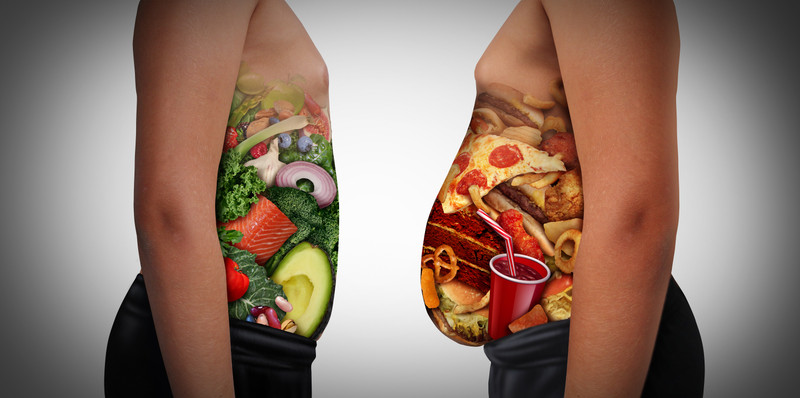While millions of adults across America look to trim weight or slim down, even if they aren’t classified as obese, it’s easy to overlook the fact that many teens, and younger, are dealing with the same issue. This is true even at young ages where just a few decades ago children who were – dare we call them “fat” –in the slim minority among their peers, no pun intended. But that has changed in recent years.
Based on studies conducted between 2017 and 2020 by the CDC (the U.S. Centers for Disease Control and Prevention), we now know that close to 15 million American children – or about 20 percent of children and adolescents between the ages of 2 and 19 – are considered obese. The medical community defines the line of obesity as having a body mass index (BMI) at or above the 95th percentile for children 2 and over.
Childhood Obesity and Its Causes
Childhood obesity is considered a complex chronic condition. It’s a long-range problem but one that should be of particular concern and attention, as much for the parents as it is for children themselves. One contributing factor to obesity, and this is no surprise either, is a child’s consumption of more calories than they “burn up” (such as in exercise or playground play). Their body stores the extra calories as body fat.
Contributing factors usually include how much food children eat, the type of food being consumed, and how each child’s body uses that energy. Laziness or lack of willpower alone aren’t responsible for developing obesity.
Other factors that can lead to obesity include genetic factors: children whose biological parents are obese are more prone to be obese themselves. Behaviors and environments can influence how your genes work, too. Violence, for example, has been associated with changes in genes that can affect the immune system and metabolism, which in turn raises the risk of a child becoming obese because of how their body uses energy.
“Adult” Problems Now Experienced by Obese Children
Problems associated with childhood obesity can include social factors such as being bullied or mocked by other children, although there are possible serious medical issues to be considered as well. Those extra pounds on children over time can lead to health problems that were once considered only of concern to grownups – such as diabetes, hypertension (high blood pressure), and elevated cholesterol. Poor self-esteem and depression also have been linked to childhood obesity.
Natural Remedies for Obese or Overweight Children
Stocking up on supplements, herbs, and nutrients to battle childhood obesity in your family should not be your first line of defense. There is no magic pill or formula for this chronic condition. Start with a doctor’s examination and diagnosis to determine if there is indeed a problem and perhaps discover in that some underlying condition(s) that could be a cause. Getting enough sleep and exercise should also be in the mix, as well as parents and older siblings setting healthy examples of eating and activity. Picking out healthier foods and snacks to put on the table, and taking your child to the doctor at least once a year for checkups are important, too.
That said, there are a few supplements to consider that can aid in healthy weight loss, but be sure to control the dosage and closely monitor the use of supplements. Of course, the first thing you should do is discuss with your pediatrician or physician the addition of any dietary supplements to your child’s regimen. Absolutely. That includes knowing age restrictions for use of supplements with children.
Vitamin D. Recent research has shown that vitamin D deficiency could be a factor behind childhood obesity, which has been singled out by the World Health Organization (WHO) as one of the most serious public health crises of this century. D supplements have been shown to promote weight loss in obese children, thus helping to reduce the odds of developing heart or metabolic disease down the road.
Iron. Iron should not be thought of as just a weight-loss compound; it’s not. But it has been found that overweight or obese children have a heightened risk of being deficient in iron, which is an essential element for enhancing the development and growth of children.
Probiotics. Several years ago, scientific researchers conducting a 12-week study of 54 obese children between 6 and 14 determined that those chosen to be given probiotic supplements lost noticeably more weight and achieved better metabolic health than those children not given the supplements.
Zinc. This trace element, while not thought to be a weight-loss inducer, is vital for the proper and timely development of muscles and bones in growing children. An undersupply of zinc in the body can lower the body’s resistance and increase susceptibility to infections that might be particularly harmful to obese children.
It’s important to remember that although child obesity is classified as a chronic condition, it is certainly treatable with proper, monitored lifestyle and diet changes, and that some supplements can help in the areas of weight loss and metabolic health. Again, be sure to discuss such supplement use with your physician or other licensed healthcare professional.. This trace element, while not thought to be a weight-loss inducer, is vital for the proper and timely development of muscles and bones in growing children. An undersupply of zinc in the body can lower the body’s resistance and increase susceptibility to infections that might be particularly harmful to obese children.
It’s important to remember that although child obesity is classified as a chronic condition, it is certainly treatable with proper, monitored lifestyle and diet changes, and that some supplements can help in the areas of weight loss and metabolic health. Again, be sure to discuss such supplement use with your physician or other licensed healthcare professional.

